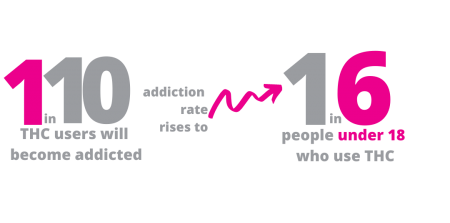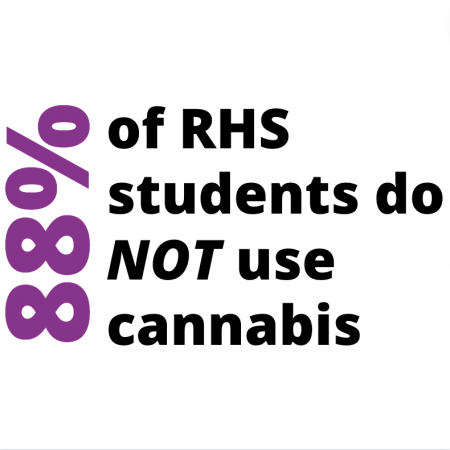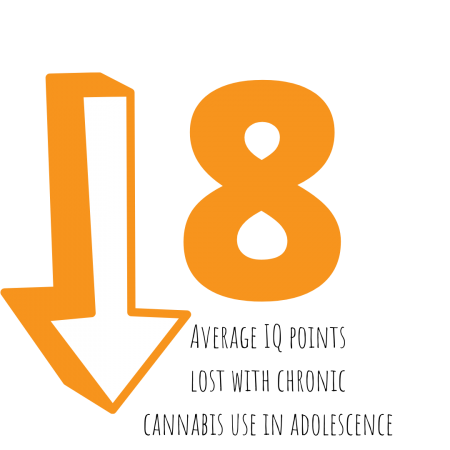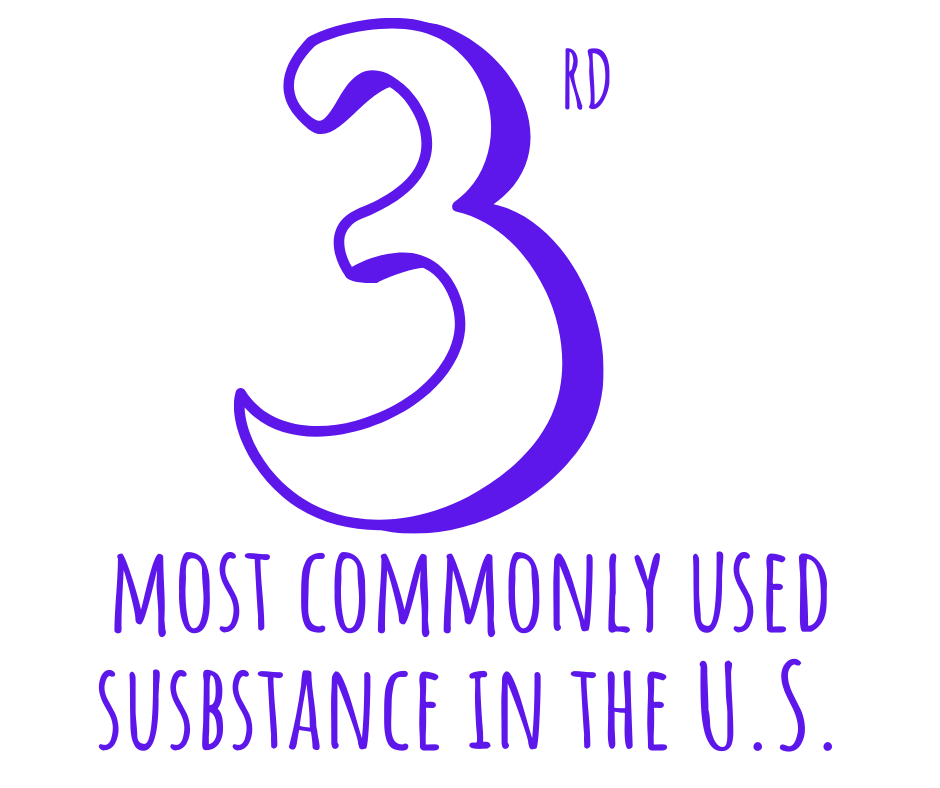Short Term Effects on the Brain
- Altered senses (for example, seeing brighter colors)
- Altered sense of time
- Changes in mood
- Impaired body movement
- Difficulty with thinking and problem- solving
- Impaired memory
- Hallucinations (when taken in high doses)
- Delusions (when taken in high doses)
- Psychosis (risk is highest with regular use of high potency THC)
Long Term Effects on the Brain
- Affects brain development, meaning teenagers who use cannabis are at risk of impairing:
- Thinking
- Memory
- Learning functions
- It affects how the brain builds connections between the areas necessary for these functions.
Delta-9 tetrahydrocannabinol or better known as THC is the chemical in cannabis most responsible for the 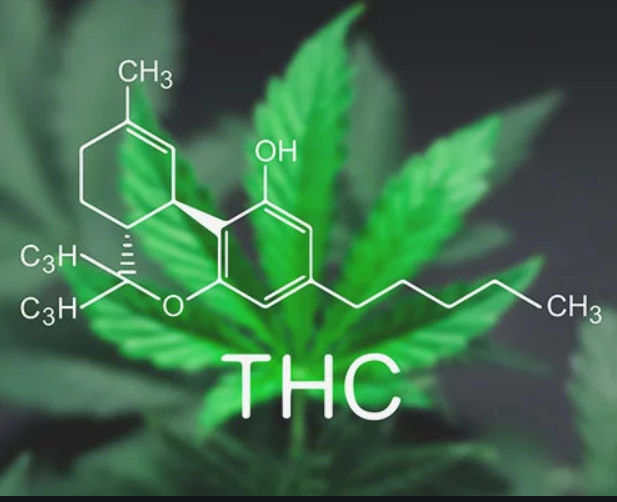 intoxicating effect people have after consuming cannabis.
intoxicating effect people have after consuming cannabis.
The chemical is found in resin produced by the leaves and buds primarily of the female cannabis plant. The plant also contains over 500 other chemicals, including more than 100 compounds that are chemically related to THC, called cannabinoids.
Traveling through the body via the blood, it is sent to the body’s organs like the brain. Organs in the body have fatty tissues that quickly absorb the THC in cannabis, creating the intoxication.
Potency
Cannabis today is much stronger than that of the 1970s and even ’90s. According to NIDA, in the early 1990s, the average THC content in confiscated cannabis samples was less than 4%. However, in 2018, it was more than 15%.
Also, new methods of consumption of cannabis (dabbing and oils) deliver even higher levels of THC to a person. The average cannabis extract contains more than 50% THC, with some samples exceeding 80%.
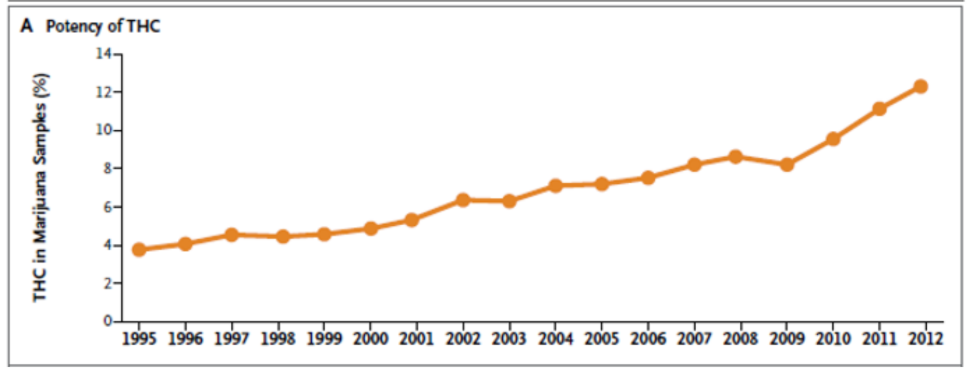
There is a misconception in society that cannabis is not addictive. But the true facts are that approximately 30% of people who use cannabis develop marijuana use disorder. That rate increases 4-7 times when people under the age of 18 engage in cannabis use.
Click HERE TO LEARN THE TRUE FACTS REGARDING COMMON MISCONCEPTIONS regarding cannabis
Sources: National Institute on Drug Abuse, 2021 RHS Vernon Youth Voices Count Survey Results, 2020 Monitoring the Future
Revised November 2021
